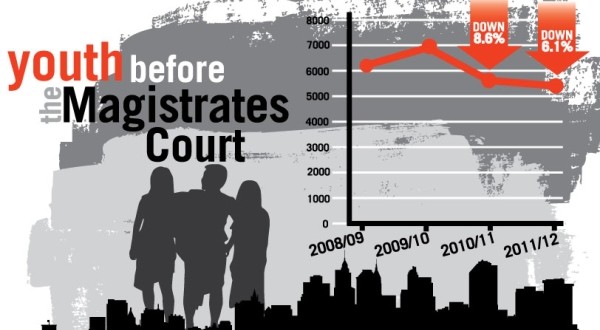Recent changes to the Juvenile Justice Act have gone largely unreported, but were highly politicised and do nothing to prevent reoffending, says Steve Skitmore from Youth Affairs Network Queensland.
It's been a long time coming. In June 2009, then-Queensland Deputy Opposition Leader Lawrence Springborg flagged huge changes to the Juvenile Justice Act under a Liberal National Party Government in Queensland. Three years later, a newly elected LNP Government with a massive majority quietly passed the most far-reaching amendments to the Act in over two decades. Detention is no longer a last resort, Youth Justice Conferencing and Special Circumstances Courts have been scrapped and army-style "Boot Camps" are now an option for magistrates when sentencing juvenile offenders.
Back in 2009 Mr Springborg said the amendments were to be implemented to "uphold community expectations on how young offenders should be sentenced". A scan through The Courier-Mail archives of commentary around offences committed by young people quickly shows community expectations over many years can be summed up by the "do the crime, do the time" cliché. Articles on youth crime are largely underpinned by an irrational community fear of "youths" which does not match the reality of rates of crime committed (which are actually decreasing according to a recent Youth Advocacy Centre review).
The newly scrapped Youth Justice Conferencing was one of the most successful programs in the juvenile justice system, with numerous evaluations attesting to the satisfaction of all involved—victims, perpetrators, coordinators and departmental staff. The Youth Justice Conferencing program brought the victim, young person and their family together to come up with an agreement about how the young person could begin to repair the harm caused by the offence. Unfortunately, the program was quickly dismissed by the LNP as being part of "Labor's soft-on-crime" platform.
The problems with the politicisation of recidivism and with the LNP's one-size-fits-all, tough-on-crime approach are manifest. In the words of Associate Professor of Criminology Robyn Lincoln, sending young people to detention, or in the best case boot camps, is based on "a fundamental lack of appreciation of the causes of crime … [rather,] it signals a vengeful justice system".
This should be the real concern around youth crime. Pandering to community expectations that do not understand what actually works for young people does nothing to change the actual rates of offending amongst young people. Seeking revenge based on incorrect and hysterical assumptions of youth crime will not make the community safer.
For more information visit yanq.org.au
 JourneyOnline
JourneyOnline







